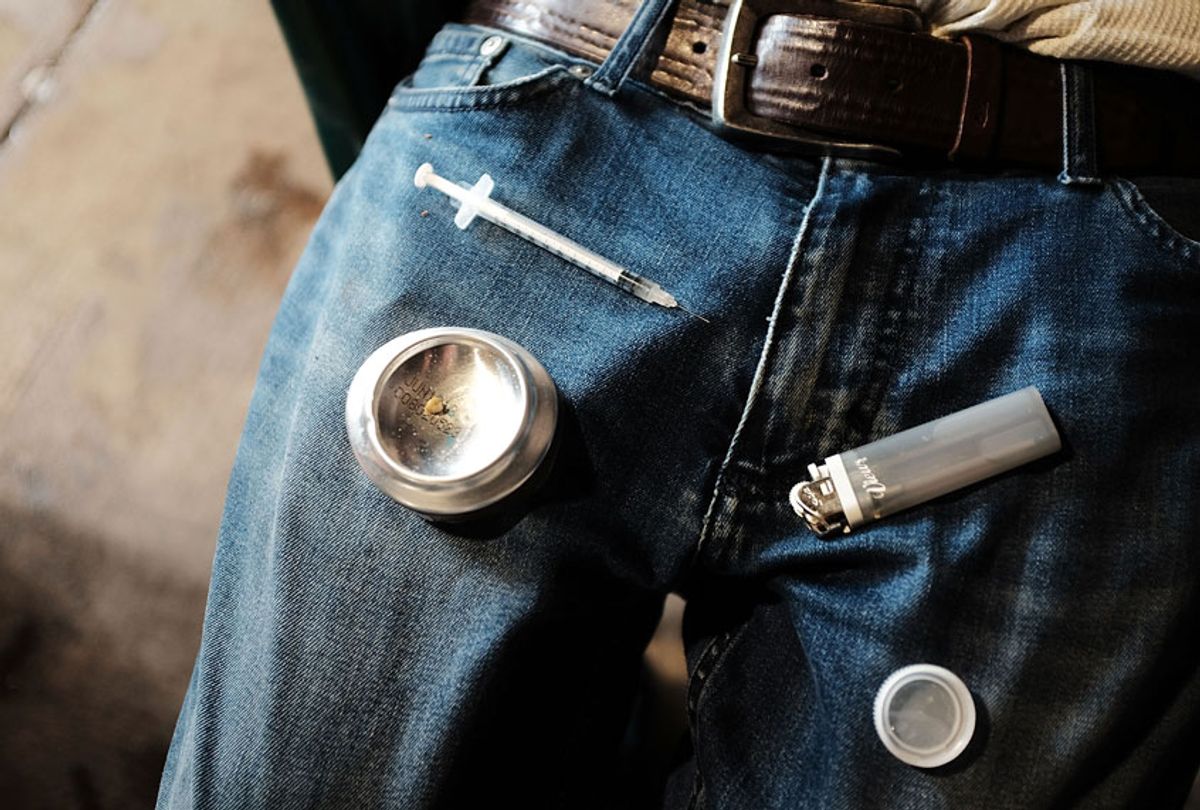New polling released Wednesday reveals that an overwhelming majority of Americans think the so-called "war on drugs" is a total failure, underscoring broad support for a new approach that puts public health over criminalization and a militarized response to the illegal narcotics trade that has lasted for decades.
The findings released by the American Civil Liberties Union (ACLU) and Drug Policy Alliance (DPA) showed that 83% of Americans say the "war on drugs" has failed. That assessment is felt similarly across party lines; 83% of Democrats expressed that view, as did 85% of Independents and 82% of Republicans. Nearly two-thirds of respondents (65%) said it's time to end the war on drugs.
The poll also found that 66% of voters support getting rid of "criminal penalties for drug possession and reinvesting drug enforcement resources into treatment and addiction services."
Similar percentages were seen in support for eliminating mandatory minimum sentences for drug crimes (64%) and for commuting or reducing the sentences of people incarcerated for drugs (61%).
A further finding was that 63% think drug use should be addressed as a public health issue compared to just 33% say it should be addressed as a criminal justice issue.
The polling came just ahead of the 50th anniversary of President Richard Nixon's "war on drugs" declaration. On June 17, 1971, Nixon called drug abuse "public enemy number one" and said it must be met with an "all-out offensive." Opponents of the approach say it's spurred decades of widespread harms to people and communities both in the U.S. and worldwide.
As a senator, Joe Biden promoted the war on drugs but in his 2020 presidential campaign sounded a different note, calling instead for a public health approach to substance abuse. In January, just ahead of his inauguration, a coalition of more than 200 drug policy, healthcare, and other community-based organizations called on Biden to end the war on drugs, telling the then-incoming administration that "the time for urgent, bold change is now."
Udi Ofer, director of the ACLU's Justice Division, urged the president to make good on his campaign pledge in a statement pointing to the drug war's fueling of the incarceration crisis.
"On this 50th anniversary of the drug war, President Biden must make good on his campaign promises and take steps to begin dismantling the system of over-policing and mass incarceration that is endemic to the war on drugs," Ofer said. "Today, drug possession continues to be the number one arrest in the United States, with more than 1.35 million arrests per year. Every 25 seconds, a person is arrested for possessing drugs for personal use, with Black people disproportionately targeted by this over-policing."
"It's time to adopt a new approach that treats substance use as a public health issue rather than a criminal justice one," Ofer continued.
Biden, he said, can "make headway in ending this harmful and racist war by commuting the sentences of people incarcerated in federal prison for drugs."
According to DPA executive director Kassandra Frederique, the new poll shows "a different reality—one where we treat people who use drugs with dignity and respect, and one where drugs are no longer an excuse for law enforcement to surveil, harass, assault, and even kill Black, Latinx, and Indigenous people—is 100% possible."
With the "devastation" of the drug war plain to see, Frederique said "it should come as no surprise that Americans are ready for a drastically different approach."
"We deserve to live in a world where the health and safety of our communities is paramount," she said, "and that means eliminating all the ways in which we are criminalized and building an alternative response to get the support and help we need."

Shares